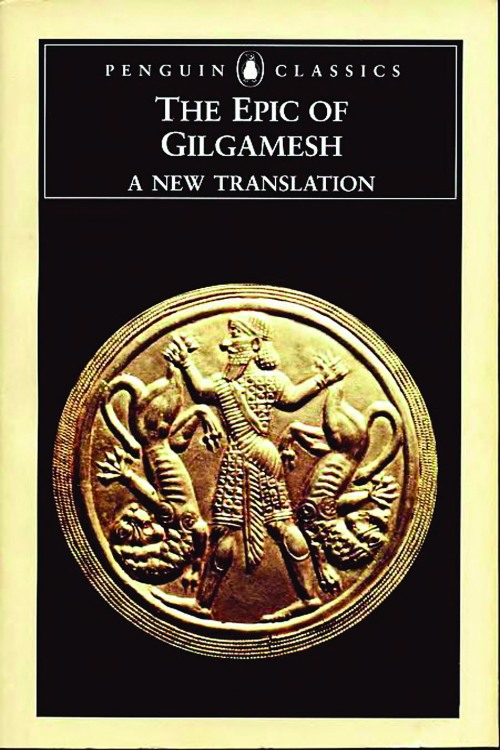Text summary
From: Book · Andrew R. George · 2000

Text
Unknown language
Background
"Standard Babylonian Gilgamesh Epic" is a translation of the Epic of Gilgamesh hero and prestige myth by Andrew R. George. It was published in 1999 and revised in 2000. George's version is the Standard Babylonian Version, as opposed to the Old Babylonian Version. It is one hundred pages long (in print format) and consists of almost three thousand lines.[1]
About Andrew R. George
According to the introductory pages of the book, Andrew George grew up in the south and eventually moved to the United Kingdom, where he studied Sumerian, Assyrian, and Babylonian literature. While earning his doctoral degree, he trained under Wilfred G. Lambert, another well-known scholar.
"ANDREW GEORGE was born in 1955 in Haslemere, Surrey. He was educated at Christ's Hospital, Horsham, and the University of Birmingham, where he studied Assyriology. For a while he kept a public house in Darlaston. He began teaching Akkadian and Sumerian language in 1983 at the University of London's School of Oriental and African Studies, where he is now Professor of Babylonian. He is also an Honorary Lecturer at the university's Institute of Archaeology. His research has taken him many times to Iraq to visit Babylon and other ancient sites, and to museums in Baghdad, Europe and North America to read the original clay tablets on which the scribes of ancient Iraq wrote. He has published extensively on Babylonian literature and religion." [2]
George has also published works related to Sumerian literature and is considered a thought leader in cuneiform studies, Assyriology, and Mesopotamian history in general.
Cite this page
OMNIKA Foundation Contributors. ""Standard Babylonian Gilgamesh Epic": Composite English Translation by Andrew R. George." OMNIKA – World Mythology Index, OMNIKA Foundation, 30 Apr. 2019, omnika.org/stable/107. Accessed 24 Feb. 2026.
OMNIKA (2019, April 30). "Standard Babylonian Gilgamesh Epic": Composite English Translation by Andrew R. George. Retrieved from https://omnika.org/stable/107
OMNIKA Foundation Contributors. ""Standard Babylonian Gilgamesh Epic": Composite English Translation by Andrew R. George." Las Vegas, NV: OMNIKA Foundation. Created April 30, 2019. Accessed February 24, 2026. https://omnika.org/stable/107.





